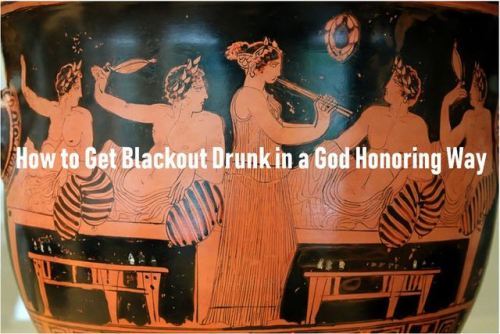Rachel Alexander's Blog, page 298
January 13, 2019
metras:
The Good Counselor Prologue: The passage of time, themes of death and life, and what in the...
The Good Counselor Prologue: The passage of time, themes of death and life, and what in the world is Orpheus up to?[Spoilers ahead]
I couldn’t fathom a better introduction to the new book. The passage of time expressed really highlights the ever-present themes of life, death, and the cycle it follows which, at its core, is the purveyed concept of the series. Of course, our main pairing have remained untouched by time and have retained their godly figures, foreboding as they may be to some.
One thing I found interesting was the inclusion of mint in the incense of a dying man’s home. Of course, the usage of mint in death is hardly a strange concept in Hellenic mythos, but it goes to show more in the context of time, and how the scandalous indiscretions of Minthe have been transformed socially in just a handful of decades. It can be assumed that by knowing the origin of the plant, the inclusion of it in the vicinity of death proves how cemented Persephone’s actions and prowess are in the eyes of Plutonion acolytes. The acceptance and veneration of Persephone’s power is very present even from the first. Regardless of its intended meaning, good riddance to Minthe and all of her bullshit trifling. There’s a reason why mint tastes bitter, after all…
The respect shown by the students and family of Eumolpus towards Persephone and Hades is tangible. She isn’t questioned even once by those present in Eumolpus’ humble abode. They clear away for her, allow her to present herself in the face of death, and give her a moment with her dearest and dying Chthonic priest. I found this notable due to the fact that the acolytes and family of Eumolpus would understand the continuation of one’s soul shade in life, and while their own earthly bodies are losing their venerable patriarch, as it were, Persephone is forever gaining the presence of Eumolpus in Elysion. Surely, they would want to cherish every second they could alone with him, if they didn’t respect and love Persephone so much.
And it’s clear to see that the efforts posed by Persephone in clearing the name of Hades and clarifying the processes of Chthonia within the mortal realm were hardly for naught. The respect they are garnering is the right type of respect — one which is not born of fear or anguish, but rather hope for continuation and the promise of rebirth.
Which is why it’s important to note the passage of time here. When Hades — in all of his epithetic glory — appears, he is met with a far more fearful response. While the indiscretions of Minthe can easily be settled with a handful of decades, the engrained respect of Aidoneus remains timid and unsure, even with his own followers. 70 years is hardly enough time to forget the fright of death’s greatest lord appearing within one’s threshold. Sure, Aidon does not carry the Scythe that castrated Ouranous himself, but the power he holds over even the chilling concept of death is far greater than the desire to see him as one would see any other Olympian.
I’ve always wondered when and how the scrolls would come into play, ever since the vision of them appeared to Aidon and Persephone in their Hieros Gamos. It’s the one piece of the puzzle I haven’t quite managed to fit into the larger picture. Finding that the gold-foil scrolls are tied to Orpheus really intrigued me. What in the world could be his purpose for including them in the mouths of the dead? Does he wish to escort more souls into Elysion by claiming the souls as being born of the heavens? And to drink from the mnemosyne…does he wish to surpass the required drink of the Lethe? Is Orpheus’ main goal to best the processes of Chthonia and death?
This is my theory. This purpose feels like an expansion of his goals in traditional mythos — specifically in his quest to retrieve Euridice’s shade from Asphodel. But while we can assume that Orpheus would aid Hades and Persephone in their efforts to successfully conceive, would this make him something of an antagonist? After all, Sisyphus also tried to defeat the circle of life and garner powers of the heavens, too, and we know how well that went…
Perhaps Orpheus’ intentions are good, and he only wishes for people to remember their lives as they are escorted into death. That would explain why the scrolls contain directions to allow the soul to drink from the waters of the Mnemosyne, counteracting the forgetful spell of the Lethe. Yet I can’t help but feel as though this would be a betrayal of Eumolpus, Persephone, and Aidoneus altogether. Why else would the death of a venerable follower be so eloquently included as the prologue to this novel? Attempting to circumvent the very fundamental nature of life and death is very much against the interests of Chthonia, its rulers, and its acolytes.
I can’t wait for next week, and I wish Wednesday would come faster! This was a fantastic read, and I eagerly await the next installment.
"Cold seeped into his skin again and a weight formed in his chest. For all that he was attuned to his..."
Cold seeped into his skin again and a weight formed in his chest. For all that he was attuned to his surroundings, it was unlike anything he’d experienced before.
He wasn’t just being watched, but looked through, body and soul. The woods were silent, as though every creature knew to be still, and Orpheus wondered… He’d rid himself of miasma. He’d called upon a goddess with his song. She was here; she must be.
The lump in his throat, the cold, a sense of dread and the fleeting thought of asphodel flowers… He quickly dropped to one knee and bowed his head. “Lady of the Flowers and Spring, Mistress of the Lands Beneath the Earth… If it is you… I am your humble servant.”
“It is not she.”
”-
The Good Counselor, Chapter 1

| AO3 | FanFiction | FictionPress | WattPad | Tumblr |
The Good Counselor by Rachel AlexanderBook Three in the Hades and Persephone series, and the sequel to Receiver of Many and Destroyer of Light.
Free previews published weekly every Wednesday night at Midnight, Pacific Standard Time.
| Prologue | _ | _ | _ | _ | _ | _ | _ | _ |
January 11, 2019
Question! (If you have time and feel like it!) How much time do you reckon went between the births of the six olympians? And did Kronos go all crunch munch the second they were out, or did Rhea manage to hide some of them for a while? Thanks! (And happy th
Hope everyone had a Happy Thanksgiving!
Hopefully marshmallows were as far the fuck away from your yams and sweet potatoes as possible, your dinner conversations were pleasant, and your turkey not carved in icy silence.
And to those of us in late-stage capitalism, happy Small Business Saturday. (Use cash. No really.)
Onward…
.
When I finally get around to writing Titanomachy (which I hope to do before publishing the fifth book in this series), you’ll hear all about Kronos and the decisions he made in the prologue and multiple back story references.
My Hades and Persephone series canon differs from existing written mythology and goes as follows…
Hades was born firstHe was only alive for a matter of hours before being swallowed by Kronos who did so because killing his child (which he very well could have done) would have resulted in the rest of the immortals from the Protogenoi to the other Titans revolting against him. It would have effectively sped up the Fates’ prophecy.It was a long time before Rhea gave birth to Hestia, given what happened to her first child. She consulted other Titan women to find out what would stop her from getting pregnant again.Kronos didn’t care, and wanted more children despite Rhea’s pleas not to, because Kronos discovered that he was all the more powerful after he swallowed each child. That concept is actually borne out in the original mythology because Zeus gained more forethought and wisdom after he swallowed Metis. Kronos found ways around the contraceptives Rhea and her sisters had devised and they were easier to overcome the more omnipotent he grew. After Hestia, subsequent children (in my ordering: Hera, Poseidon, Demeter) were spaced several thousand years apart thereafter.Realizing that Kronos was never going to stop and there was nothing left that she could do, Rhea used a dangerous abortifacient (I can’t give it away here) to have Zeus a few weeks early and left him with the Kouretes to nurse from a goat named Amalthea. She conspired with Metis, her midwife to “deliver” at the appointed time, and Kronos swallowed the Omphalos Stone instead of Zeus and the rest is history.
So I hope that answered your question.
symphonyofmars:
therkalexander:
“We are, all of us, the sum of our parts, good and bad,” a...
“We are, all of us, the sum of our parts, good and bad,” a baritone voice said from the back corner of the room. He removed his helm, becoming visible to all within. Hades watched twenty pairs of eyes widen, then avert. The dark robed mortals knelt and bowed to him, some trembling in fear. Eumolpus’s eyes widened and he stretched a knobby hand out to his lord.
“Eubouleus,” he whispered, using one of Aidoneus’s many epithets.
“Be unafraid,” Persephone said to the cowering Eleusinians. “Plouton is here as a friend.”
They knew Persephone well, many since birth, but even members of her priesthood were wary of the Unseen One. They gave him a wide berth, crowding to the far side of the bed when he strode across the room to join his wife.
Aidoneus managed a thin smile. “My queen speaks the truth. Do you suppose anyone who goes to the Elysian Fields is as pure as snow?”—
The Good Counselor, Prologue
| AO3 | FanFiction | FictionPress | WattPad | Tumblr |
The Good Counselor by Rachel AlexanderBook Three in the Hades and Persephone series, and the sequel to Receiver of Many and Destroyer of Light.
Free previews published weekly every Wednesday night at Midnight, Pacific Standard Time.
| Prologue | _ | _ | _ | _ | _ | _ | _ | _ |
!!!!!!
I have a question, one I don't know if you've been asked, but is it true that Zeus changed Persephone's name from Kore to Persephone? I personally don't believe it, but it's a common claim that Demeter named her daughter "Kore" and Zeus later changed her n
I’ve never seen that in all my research. In the Homeric Hymn to Demeter she is referred to only in suggestions, like “the one with the slender ankles” or as “maiden” (kore) before she is abducted, then only refered to as Persephone after.
You should write more modern!AU persephone and hades. The possibilities of shenanigans they can get into are endless XD
I liked writing a modern!AU piece about Hades and Persephone, but I think that if I try it again I’d accidentally fill it with spoilers and ruin everything forever. So maybe a long while from now, but not any time soon. Besides… I have a Kickstarter I’m currently putting together and unfortunately don’t have time to write short stories at least for a little while.
But I’m glad you liked “Costa Rica” :)








